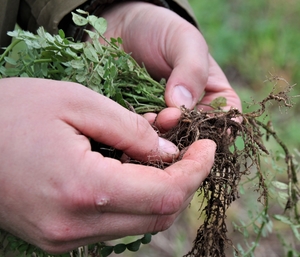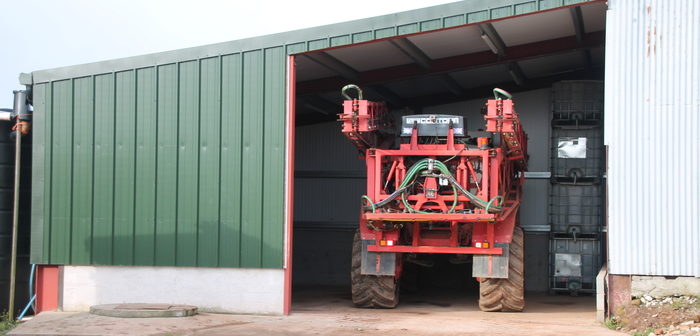The annual Severn Trent Environmental Protection Scheme (STEPS) has relaunched from today until 31 January 2022 – providing a greater window of support to farmers, after a year of unprecedented challenges in the agricultural community. This extended window is now offering match funding of up to £10,000 for farm improvements that address water quality issues.
Also available for applications for a limited time until 18 April 2021, is additional funding improve biodiversity on-farm under Severn Trent’s ‘Spring STEPS’ scheme, which is exclusively for farmers who have previously received funding for, or have plans to apply for, a priority water quality item in the main STEPS scheme.
Dr Alex Cooke, principal catchment management scientist at Severn Trent, explains that the major extension to the STEPS application window will give farmers the flexibility to choose a time to suit them to apply and carry out the funded work.
“We know that farmers have had to overcome numerous challenges over the past year, including flooding, periods of continuous wet weather, the uncertainty brought by Brexit, and pressures presented by Covid-19. So, for one year only, we’ve decided to open STEPS applications up for longer. Successful applicants will then have a further 12 months to complete their work after funding is confirmed.
“This match funding is available to farmers in priority catchments to address issues such as nitrates, pesticides and cryptosporidium reaching watercourses. A range of items are available from cover crops and pesticide washdown bays, to livestock fencing and covered handling areas,” she says.
“Spring STEPS works in a similar format to the wider grant programme, but offers funded options specifically for improving farm biodiversity, such as wetland creation, inputting pollinator meadows and margins, or enhancing grasslands.”
How to apply:
- Check you’re in a priority catchment here: stwater.co.uk/steps
- To increase your chances of a successful application seek advice from your local Severn Trent agricultural adviser on what options would best suit your farm and make the greatest positive impact on the environment
- Fill out your application online: stwater.co.uk/steps
- Make sure your application is in by 18 April if you are applying for a Spring STEPS biodiversity grant
- If not, make sure your application is in by 31 January 2022, bearing in mind that you will have 12 months to complete the work after you have been accepted
Priority items:
Choosing a priority item for your catchment could help ensure your application is successful, to find out which bracket your farm fits into, visit the Severn Trent website and consult the Options Handbook. These items include:

Inspecting cover crop
Pesticide catchment areas:
- Pesticide washdown areas, including roofing
- Grass margins
- Biobeds and biofilters
- Alternative weed management in grassland fields
- Precision pesticide application equipment
Nitrate catchment areas:
- Cover crops
- Grass margins
Cryptosporidium catchment areas:
- Livestock fencing along watercourses
- Hard bases for drinking troughs
- Roofed livestock handling and manure storage areas
- Constructed wetlands




